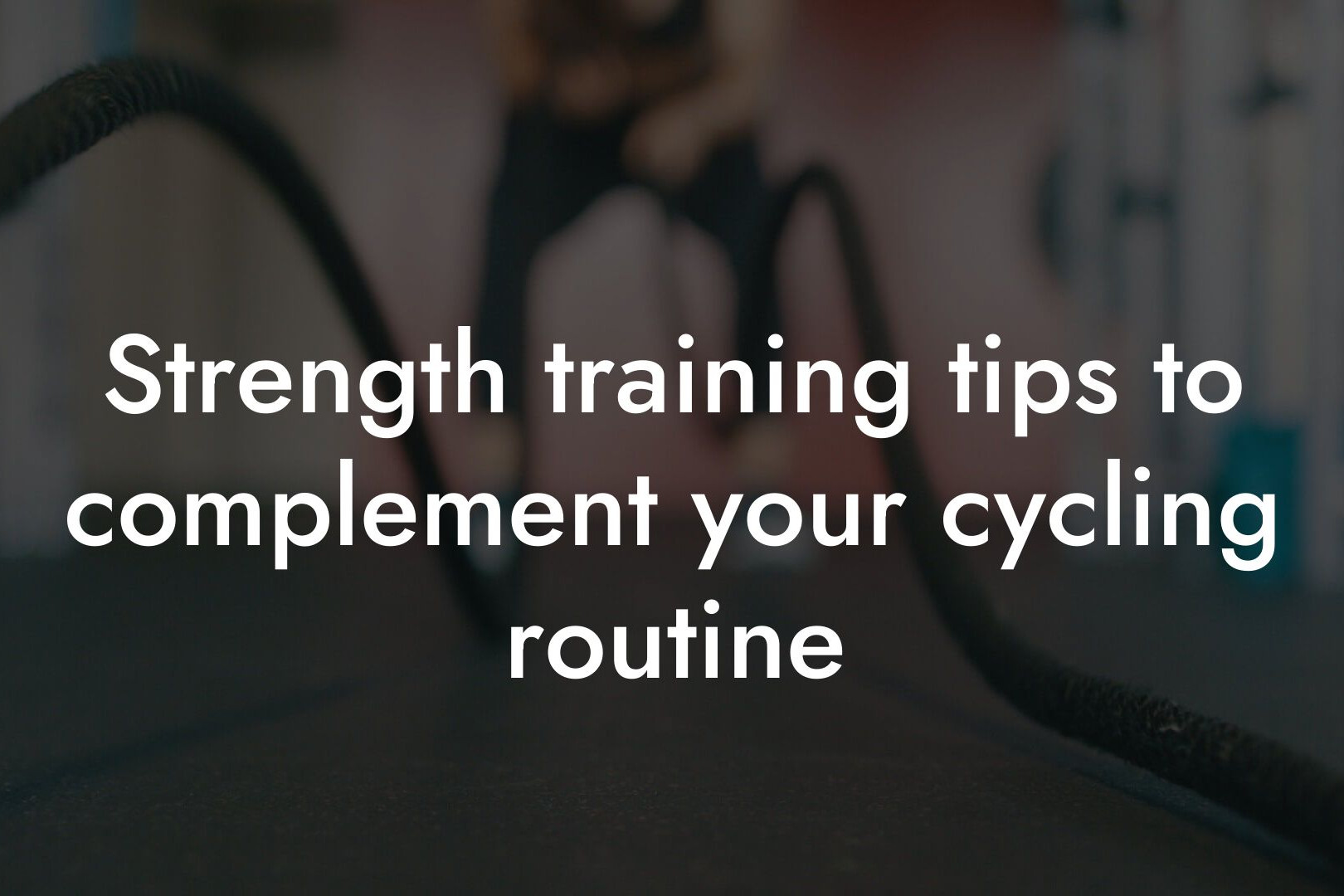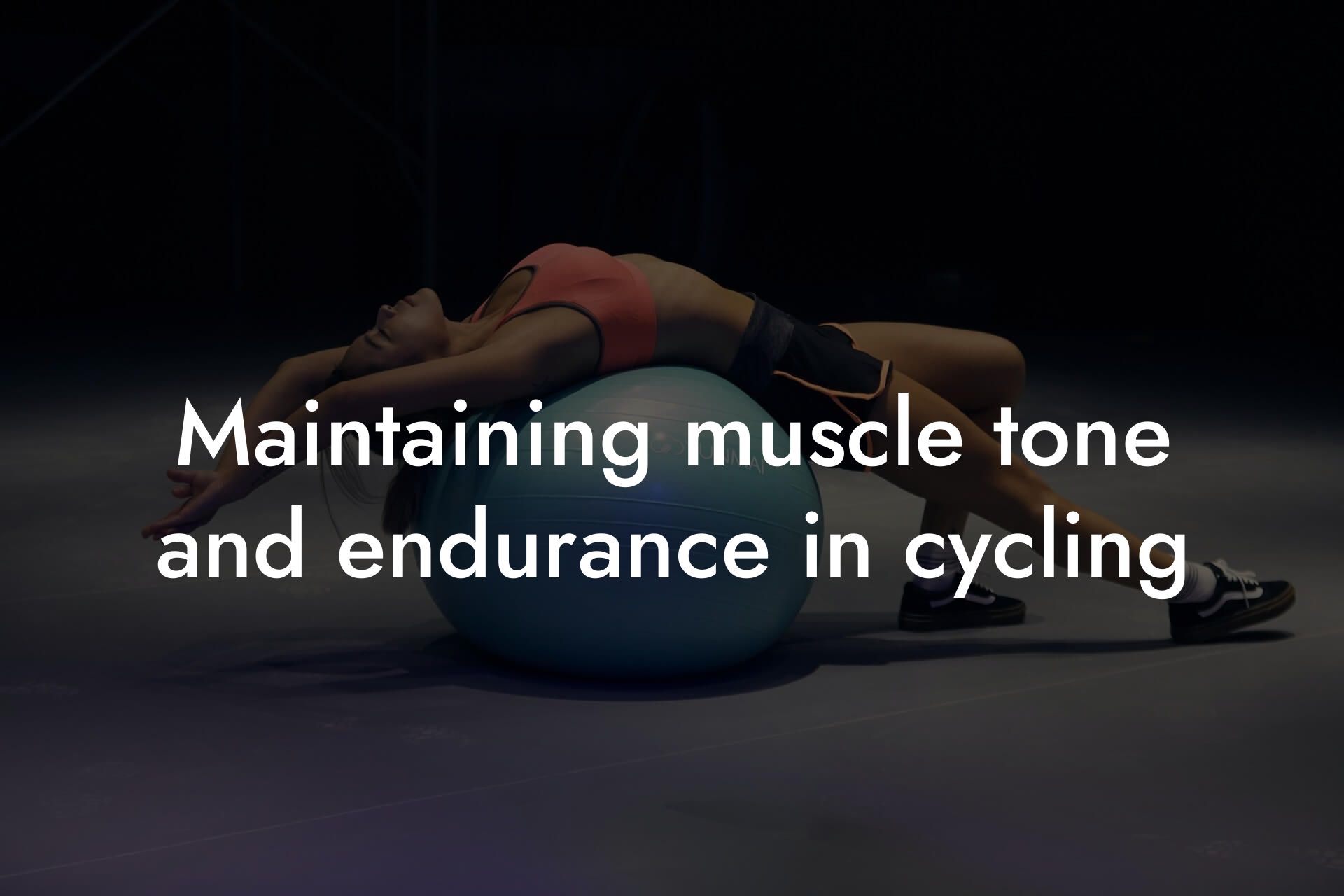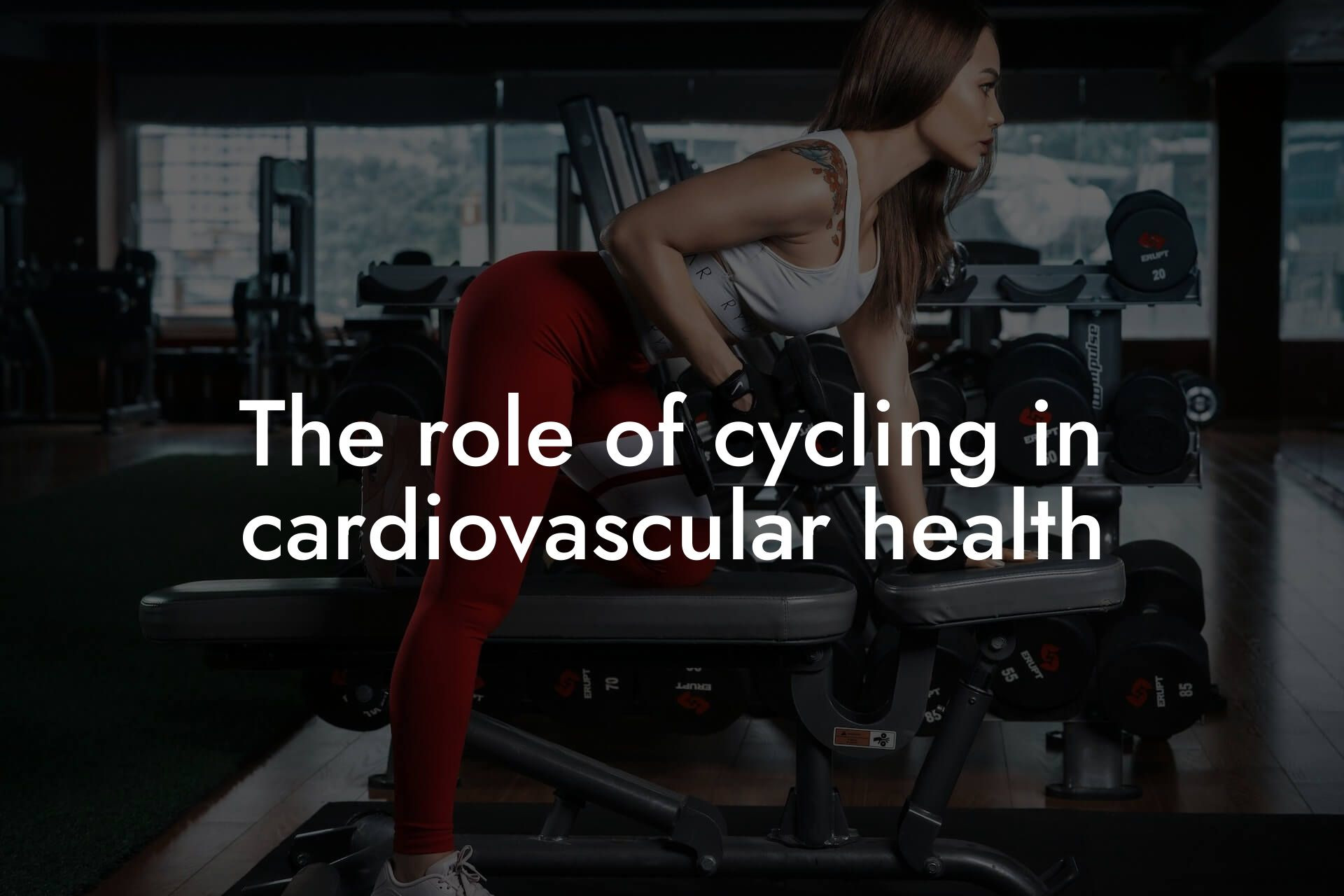As a high-earning professional, you understand the importance of maintaining a healthy and fit physique to perform at your best in both your personal and professional life. Engaging in regular spin classes is an excellent way to improve your cardiovascular health, boost your mood, and increase your energy levels. However, to get the most out of your spin classes, it's essential to fuel your body with the right nutrients to sustain your energy levels throughout the session. In this article, we'll explore the best nutrition strategies to help you power through your spin classes and achieve your fitness goals.
Table of Contents
Understanding Energy Systems and Spin Classes
Before we dive into the nutrition strategies, it's essential to understand how energy systems work during spin classes. There are three primary energy systems: the phosphocreatine system, the anaerobic system, and the aerobic system. During a spin class, you'll primarily use the anaerobic system, which relies on stored energy sources like glycogen and ATP to fuel your muscles. As the class progresses, you'll start to rely more on the aerobic system, which uses oxygen to convert glucose into energy. Understanding these energy systems will help you tailor your nutrition strategy to optimize your performance.
Pre-Workout Nutrition
A well-planned pre-workout meal or snack is crucial to provide energy for your spin class. Aim to consume a balanced meal or snack that includes complex carbohydrates, protein, and healthy fats 1-3 hours before your class. Some examples of pre-workout meals or snacks include:
- Oatmeal with banana and almond butter
- Whole-grain toast with avocado and eggs
- Greek yogurt with berries and honey
- Smoothie bowl with spinach, banana, and almond milk
These foods will provide sustained energy, support muscle function, and help you feel full and satisfied throughout your workout.
Hydration and Electrolytes
Proper hydration is essential for optimal performance during spin classes. Aim to drink at least 16-20 ounces of water 1-2 hours before your class, and continue to drink water throughout the session. Additionally, consider incorporating electrolyte-rich beverages or supplements to help replenish lost electrolytes. Electrolytes like sodium, potassium, and magnesium play a crucial role in regulating muscle function and preventing dehydration.
Intra-Workout Nutrition
During intense spin classes, you may need to refuel with carbohydrates to maintain energy levels. Consider consuming a sports drink or energy gel that contains 15-30 grams of carbohydrates per serving. These products can help replenish energy stores and provide a quick energy boost. However, be cautious not to overconsume carbohydrates, as this can lead to digestive discomfort and decreased performance.
Post-Workout Nutrition
After your spin class, it's essential to refuel with a balanced meal or snack that includes carbohydrates and protein. This will help promote muscle recovery, replenish energy stores, and support muscle growth and repair. Aim to consume a post-workout meal or snack within 30-60 minutes after your class, and include foods like:
- Grilled chicken with sweet potato and broccoli
- Whole-grain pita with hummus and turkey
- Smoothie with banana, protein powder, and almond milk
- Rice cakes with peanut butter and banana slices
These foods will provide the necessary nutrients to support muscle recovery and promote overall health.
Macronutrient Ratios for Spin Classes
To optimize your performance during spin classes, it's essential to understand the ideal macronutrient ratios. Aim to consume a balanced diet that includes:
- 2-3 grams of carbohydrates per kilogram of body weight
- 1.2-1.6 grams of protein per kilogram of body weight
- 0.5-1 gram of healthy fats per kilogram of body weight
These ratios will provide the necessary energy for your spin classes, support muscle function, and promote overall health.
Supplements for Spin Classes
While a well-planned diet is essential for optimal performance, supplements can provide an additional energy boost and support muscle recovery. Consider incorporating the following supplements into your routine:
- Branched-Chain Amino Acids (BCAAs) to reduce muscle soreness and fatigue
- Creatine to increase muscle strength and endurance
- Beta-Alanine to increase muscle carnosine levels and delay fatigue
- Caffeine to increase alertness and energy
However, always consult with a healthcare professional or registered dietitian before adding any new supplements to your routine.
Individualized Nutrition Planning
Everyone's nutritional needs are unique, and what works for one person may not work for another. Consider consulting with a registered dietitian or nutritionist to develop a personalized nutrition plan tailored to your specific needs and goals. At Tano Performance Group, we offer comprehensive body assessments using our DEXA machine to provide you with a detailed understanding of your body composition and nutritional needs. With this information, you can develop a tailored nutrition plan to optimize your performance and achieve your fitness goals.
By incorporating these nutrition strategies into your routine, you'll be able to power through your spin classes with sustained energy and achieve your fitness goals. Remember to stay hydrated, listen to your body, and adjust your nutrition plan as needed to optimize your performance.
Frequently Asked Questions
What are the benefits of proper nutrition for spin class performance?
Proper nutrition plays a crucial role in optimizing spin class performance. A well-nourished body can sustain energy levels, delay fatigue, and enhance overall physical performance. Additionally, a balanced diet can help with recovery, reducing muscle soreness and inflammation, and supporting immune function.
What are the key nutrients for sustained energy during spin classes?
The key nutrients for sustained energy during spin classes are complex carbohydrates, lean protein, and healthy fats. These nutrients provide energy, support muscle function, and aid in recovery. Additionally, electrolytes, vitamins, and minerals such as sodium, potassium, magnesium, and iron are essential for maintaining proper hydration and nerve function.
What are the best foods to eat before a spin class?
The best foods to eat before a spin class are those that are high in complex carbohydrates, moderate in protein, and low in fat and fiber. Examples of ideal pre-spin class foods include oatmeal with banana and honey, whole-grain toast with avocado and eggs, and Greek yogurt with berries and nuts. Aim to eat a meal or snack 1-2 hours before class to allow for proper digestion.
How much water should I drink before, during, and after a spin class?
Aim to drink at least 16-20 ounces of water 1-2 hours before a spin class, and 8-10 ounces 30 minutes before class. During class, drink 4-6 ounces of water every 10-15 minutes. After class, drink 16-20 ounces of water within 30 minutes to aid in recovery and rehydration.
What are the best hydration drinks for spin class?
The best hydration drinks for spin class are those that contain electrolytes, such as coconut water, sports drinks, or energy drinks. These drinks help replenish lost electrolytes and maintain proper hydration. However, be mindful of added sugars and artificial ingredients, and opt for natural, low-calorie options whenever possible.
Can I eat during a spin class?
It's generally not recommended to eat during a spin class, as it can be difficult to digest food while exercising at high intensities. However, if you need a quick energy boost, consider consuming a small, easily digestible snack such as a energy gel, energy bar, or dried fruit. Be sure to wash it down with water to aid in digestion.
What are the best post-spin class snacks?
The best post-spin class snacks are those that are high in protein and complex carbohydrates, and low in fat and fiber. Examples of ideal post-spin class snacks include chocolate milk, protein smoothies, energy bars, and trail mix with nuts and dried fruit. Aim to consume a snack within 30-60 minutes after class to aid in recovery.
How can I prevent bonking during a spin class?
Bonking, or hitting the wall, occurs when your body's energy stores are depleted. To prevent bonking, make sure to fuel properly before class, stay hydrated during class, and consume a balanced diet that includes complex carbohydrates, lean protein, and healthy fats. Additionally, pace yourself during class and take regular breaks to avoid exhaustion.
What are the signs of dehydration during a spin class?
The signs of dehydration during a spin class include dizziness, lightheadedness, headaches, muscle cramps, and excessive sweating. If you experience any of these symptoms, stop class immediately and drink water or a hydration drink to rehydrate.
How can I optimize my electrolyte levels during a spin class?
To optimize your electrolyte levels during a spin class, consume electrolyte-rich foods and drinks before, during, and after class. Examples of electrolyte-rich foods include bananas, avocados, and nuts, while electrolyte-rich drinks include coconut water and sports drinks. Additionally, consider taking an electrolyte supplement or tablet during class to maintain proper electrolyte levels.
What are the benefits of caffeine during a spin class?
Caffeine can provide a mental and physical boost during a spin class, increasing energy levels and enhancing performance. However, be mindful of individual caffeine sensitivity and consume it in moderation. Aim to consume 100-200mg of caffeine, or about 1-2 cups of coffee, 30 minutes before class.
Can I consume protein during a spin class?
While protein is essential for muscle recovery, it's not recommended to consume protein during a spin class. Protein can be difficult to digest during high-intensity exercise, and may cause stomach discomfort or cramps. Instead, focus on consuming protein-rich foods and drinks after class to aid in recovery.
How can I reduce muscle soreness after a spin class?
To reduce muscle soreness after a spin class, consume a post-class snack or meal that includes anti-inflammatory foods such as omega-3 fatty acids, turmeric, and ginger. Additionally, stay hydrated, stretch after class, and consider taking a recovery supplement such as protein or creatine.
What are the best foods to eat after a spin class?
The best foods to eat after a spin class are those that are high in protein, complex carbohydrates, and healthy fats. Examples of ideal post-spin class foods include grilled chicken with sweet potatoes and avocado, salmon with quinoa and vegetables, and Greek yogurt with berries and nuts. Aim to eat a meal or snack within 30-60 minutes after class to aid in recovery.
How can I optimize my nutrition for spin class performance?
To optimize your nutrition for spin class performance, focus on consuming a balanced diet that includes complex carbohydrates, lean protein, and healthy fats. Stay hydrated by drinking plenty of water and electrolyte-rich drinks, and avoid processed and high-sugar foods that can hinder performance. Additionally, experiment with different foods and drinks to find what works best for your body.
What are the common nutrition mistakes to avoid during spin class?
The common nutrition mistakes to avoid during spin class include not fueling properly before class, not staying hydrated during class, and consuming high-sugar or high-caffeine foods and drinks that can cause energy crashes. Additionally, avoid trying new foods or drinks during class, and instead stick to what you know works for your body.
How can I customize my nutrition plan for spin class?
To customize your nutrition plan for spin class, consider your individual energy needs, dietary restrictions, and preferences. Experiment with different foods and drinks to find what works best for your body, and adjust your plan accordingly. Additionally, consult with a registered dietitian or nutritionist for personalized guidance.
What are the benefits of periodized nutrition for spin class performance?
Periodized nutrition involves adjusting your nutrition plan based on your training phase. For spin class, this may mean increasing carbohydrate intake during high-intensity training phases, and increasing protein intake during recovery phases. Periodized nutrition can help optimize performance, enhance recovery, and reduce the risk of injury or burnout.
How can I track my nutrition and performance during spin class?
To track your nutrition and performance during spin class, consider keeping a food and exercise diary, or using a mobile app or spreadsheet to track your progress. Monitor your energy levels, performance metrics, and body composition, and adjust your nutrition plan accordingly.
What are the best nutrition apps for tracking spin class performance?
The best nutrition apps for tracking spin class performance include MyFitnessPal, Strava, and Training Peaks. These apps allow you to track your food intake, exercise, and performance metrics, and provide personalized recommendations for improvement.
How can I stay motivated to prioritize nutrition for spin class performance?
To stay motivated to prioritize nutrition for spin class performance, set specific, measurable, and achievable goals, and track your progress. Find a workout buddy or accountability partner, and celebrate your successes along the way. Additionally, focus on how proper nutrition makes you feel, rather than just the performance benefits.
Here are some related articles you might love...
- Strength training tips to complement your cycling routine
- Maintaining muscle tone and endurance in cycling
- The role of cycling in cardiovascular health
- How DEXA scans can benefit cycling enthusiasts
- Balancing strength and endurance in spin classes
- Bone density and its role in cycling performance
- How body composition affects cycling performance
- Recovery techniques for cyclists after intense sessions
Zak Faulkner
Zak Faulkner is a leading authority in the realm of physical health and body composition analysis, with over 15 years of experience helping professionals optimise their fitness and well-being. As one the experts behind Tano Performance Group, Zak has dedicated his career to providing in-depth, science-backed insights that empower clients to elevate their physical performance and overall health.
With extensive knowledge of DEXA technology, Zak specializes in delivering comprehensive body assessments that offer precise data on body fat, muscle mass, bone density, and overall physique. His expertise enables individuals to make informed decisions and achieve their fitness goals with accuracy and confidence. Zak’s approach is rooted in a deep understanding of human physiology, combined with a passion for helping clients unlock their full potential through personalised strategies.
Over the years, Zak has earned a reputation for his commitment to excellence, precision, and client-focused service. His guidance is trusted by top professionals who demand the best when it comes to their health. Whether advising on fitness programs, nutritional strategies, or long-term wellness plans, Zak Faulkner’s insights are a valuable resource for anyone serious about taking their health and fitness to the next level.
At Tano Performance Group, Zak continues to lead our Content Team revolutionising how professionals approach their physical health, offering unparalleled expertise that drives real results.




